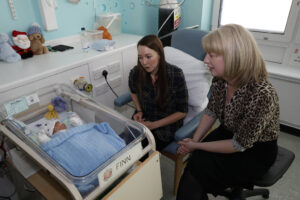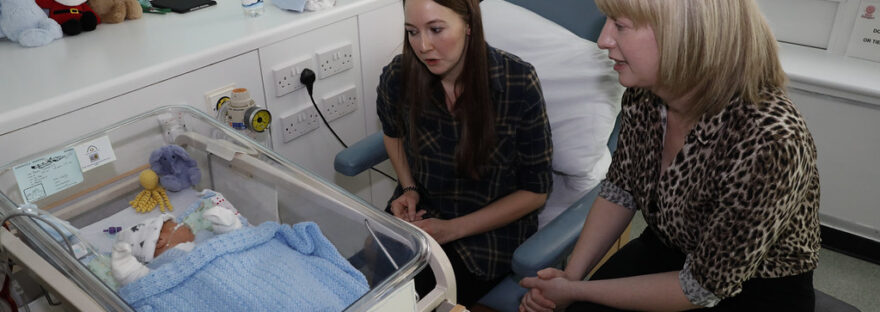Having worked with preemies babies straight out of the NICU, I can endorse the facts that there is so much more complexity to preemie development than any other. In many countries around the world, preemie babies are given special status, which means that they are automatically eligible for monitoring of development till they are at least 2 years old.
As an early intervention therapist and service coordinator in the US, I have followed many babies as soon as they come home from the NICU. Support for families include discussing how to take care of the baby within the home and family environment, how to inform other family members about the many do’s and don’ts associated with a preemie baby, how to create a development friendly environment and what to expect from preemie babies.
All families were followed by a service coordinator once a month and all five areas are tracked using parent questionnaires. As soon as a concern is noted or observed, simple environment changes are suggested to see if the baby will respond differently. If there is further need for intensive hands-on strategies, then services are provided accordingly. This system is put in place so we can monitor and track all at-risk babies and prevent any long term delays.
Families who are diligent from the beginning had higher chances of not needing any additional support after 3 years. A lovely family I worked with had twin preemie boys. As usual, both babies were regularly screened and we picked up a delay in one of twins at the 3 months screen. There was a distinct lag in head control and we started with regular therapy sessions. At the 9 month check, this baby was at par with his peers. In fact, I remember that he walked 2 weeks before his brother did!
On the other end of the spectrum, I distinctly remember a child we were following right from the time she came home from the NICU. The family, for various reasons, decided not to pursue regular services after 6 months. At 2 years, when the child needed help with speech and problem solving skills, they came back to the program. If they would have remained within the regular monitoring system, there is a good chance that we would have picked this up sooner and the child would have shown some progress.
There are many possible outcomes of development in a preemie baby and it is impossible to make a guess of what will happen unless development is tracked closely. There could be multiple outcomes ranging from all perfectly okay to a diagnosable condition in a few years. Since there is no way of predicting it, all we can do is keep a close watch and try prevention.
If there is one thing parents can take away from all of this, please remember to track your preemies development, not only growth. Growth is measured by height and weight while development is measured using milestones and skills.
While there is a general lack of awareness to track development in India, families with premature babies are hit the hardest! During NICU stay, families are overwhelmed by the medical aspects and bringing your preemie baby home in itself feels like a huge victory.

Please do remember that this is just the beginning to their beautiful lives. Track their milestones based on adjusted age and know that premature birth come with certain developmental risks that are visible later in life. Be aware and educated so IF there is need, you know what to do and where to go.
Happy Parenting
Puja
11/20/2015

